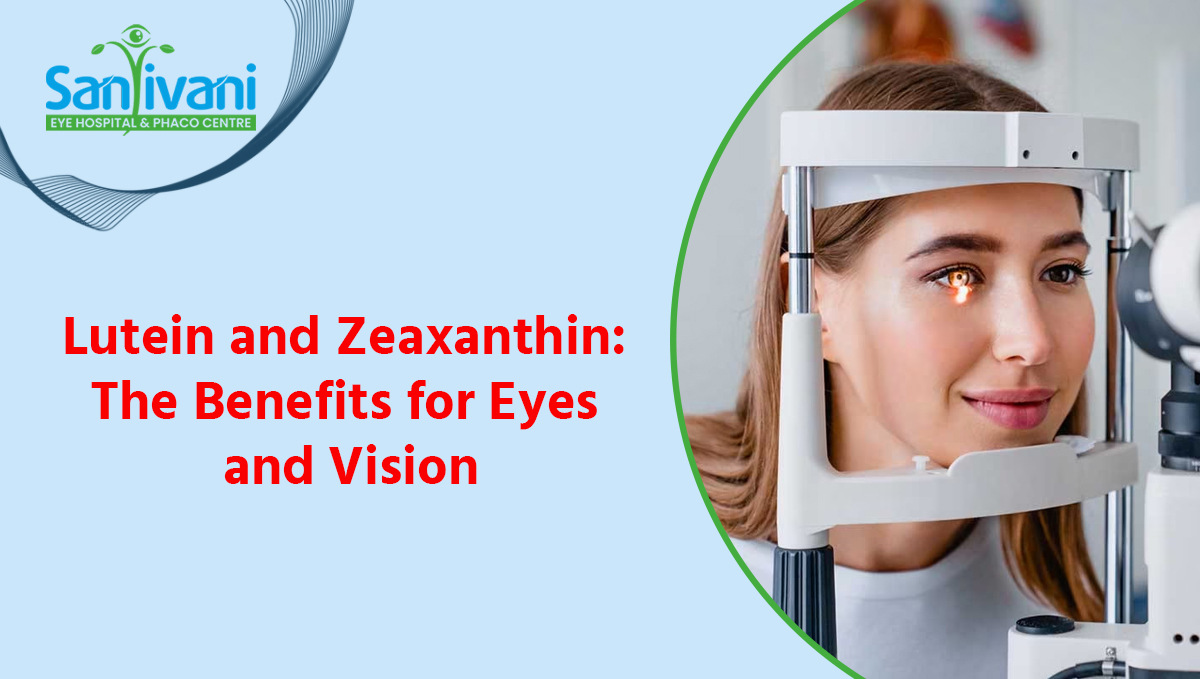
Lutein and Zeaxanthin: The Benefits for Eyes and Vision
In the quest for maintaining good eye health, many nutrients play crucial roles. Among them, lutein and zeaxanthin stand out for their significant benefits in supporting vision and protecting the eyes from damage. These carotenoids are known for their antioxidant properties and their role in maintaining eye health. In this blog, we will delve into what lutein and zeaxanthin are, their benefits for eyes and vision, and how you can incorporate them into your diet.
What Are Lutein and Zeaxanthin?
Lutein and zeaxanthin are carotenoids, a type of pigment found in various fruits and vegetables. They are both part of the xanthophyll family, a subgroup of carotenoids known for their antioxidant properties. Although they are similar in many ways, they have distinct roles in eye health:
- Lutein: Primarily found in the retina and the macula (the central part of the retina responsible for sharp, detailed vision), lutein is known for its ability to filter high-energy blue light and neutralize free radicals.
- Zeaxanthin: This carotenoid is found in high concentrations in the macula and is particularly effective in protecting the eyes from oxidative stress and harmful light.
Benefits for Eyes and Vision
1. Protection Against Age-Related Macular Degeneration (AMD):
AMD is a leading cause of vision loss in older adults. Lutein and zeaxanthin are thought to protect the macula by absorbing harmful blue light and neutralizing free radicals. This protective effect helps reduce the risk of AMD and can slow its progression.
2. Reduced Risk of Cataracts :
Cataracts, a condition characterized by clouding of the eye’s lens, are influenced by oxidative damage. Lutein and zeaxanthin’s antioxidant properties help protect the lens from oxidative stress, potentially lowering the risk of cataracts.
3. Enhanced Visual Acuity :
Studies suggest that lutein and zeaxanthin may improve visual acuity and contrast sensitivity. By filtering out blue light and improving contrast, these carotenoids help enhance overall visual performance, particularly in low-light conditions.
4. Protection from Blue Light :
Blue light from screens and sunlight can contribute to eye strain and long-term damage. Lutein and zeaxanthin absorb blue light and protect the retina from potential damage, reducing the risk of digital eye strain.
5. Support for Overall Eye Health :
Beyond specific conditions, lutein and zeaxanthin contribute to general eye health by maintaining the structural integrity of the retina and supporting healthy blood vessels in the eyes.
Sources of Lutein and Zeaxanthin
Incorporating foods rich in lutein and zeaxanthin into your diet is an excellent way to support eye health. Here are some top sources:
1. Leafy Green Vegetables:
Kale, spinach, and collard greens are among the richest sources of lutein and zeaxanthin.
2. Eggs :
Egg yolks are a significant source of lutein and zeaxanthin and offer a bioavailable form that is easily absorbed by the body.
3. Corn :
Both lutein and zeaxanthin are present in corn, making it a good addition to an eye-healthy diet.
4. Peppers :
Bell peppers, especially yellow and green varieties, provide lutein and zeaxanthin, along with other essential vitamins.
5. Carrots and Squash:
These vegetables contain lutein and zeaxanthin in addition to other beneficial nutrients for eye health.
6. Fruits :
Kiwi, grapes, and oranges contain varying amounts of lutein and zeaxanthin and can be part of a balanced diet.
Supplements and Dosage
While it’s ideal to obtain nutrients from a balanced diet, supplements can be useful, especially if dietary intake is insufficient. Typical doses in supplements range from 10 to 20 milligrams of lutein and 1 to 2 milligrams of zeaxanthin per day. However, it’s essential to consult with a healthcare provider before starting any supplement regimen to ensure it’s appropriate for your individual needs.
Tips for Maximizing Lutein and Zeaxanthin Intake
1. Diversify Your Diet :
Include a variety of colorful fruits and vegetables in your diet to ensure a broad intake of lutein and zeaxanthin, along with other essential nutrients.
2. Cook Smartly :
Cooking can enhance the bioavailability of lutein and zeaxanthin. For example, lightly steaming leafy greens can make these carotenoids more accessible.
3. Combine Foods:
Pairing foods rich in lutein and zeaxanthin with healthy fats (like olive oil) can improve their absorption, as these carotenoids are fat-soluble.
4. Stay Consistent:
Regularly consuming foods high in lutein and zeaxanthin will provide the ongoing support your eyes need.
Conclusion
Lutein and zeaxanthin play a crucial role in maintaining eye health and protecting against common vision problems such as age-related macular degeneration and cataracts. By incorporating a variety of lutein and zeaxanthin-rich foods into your diet and considering supplements if needed, you can support your eye health and potentially enhance your vision. As always, consult with a healthcare professional before making significant changes to your diet or beginning new supplements. Prioritizing these carotenoids can help ensure your eyes stay healthy and your vision remains clear as you age.